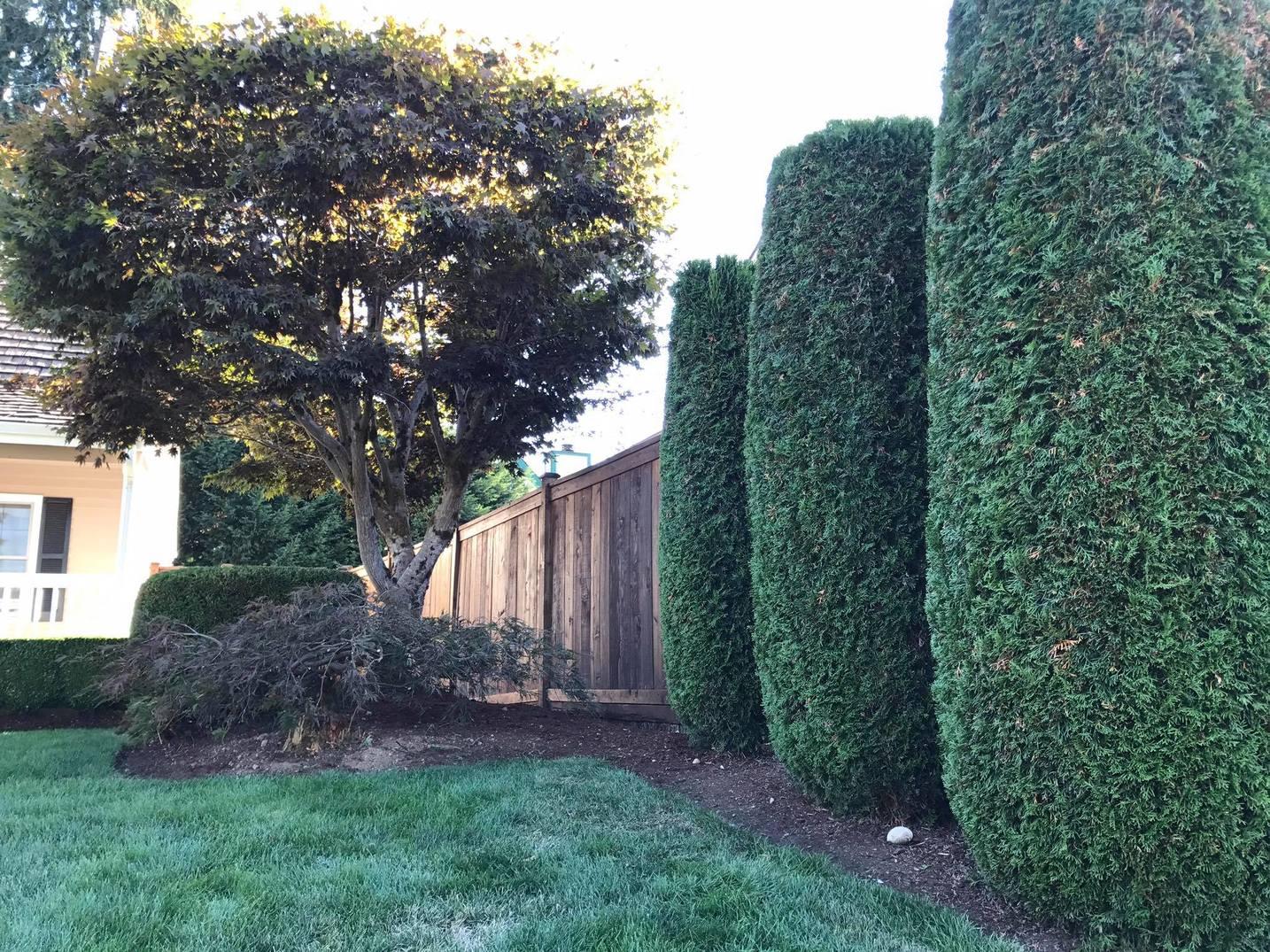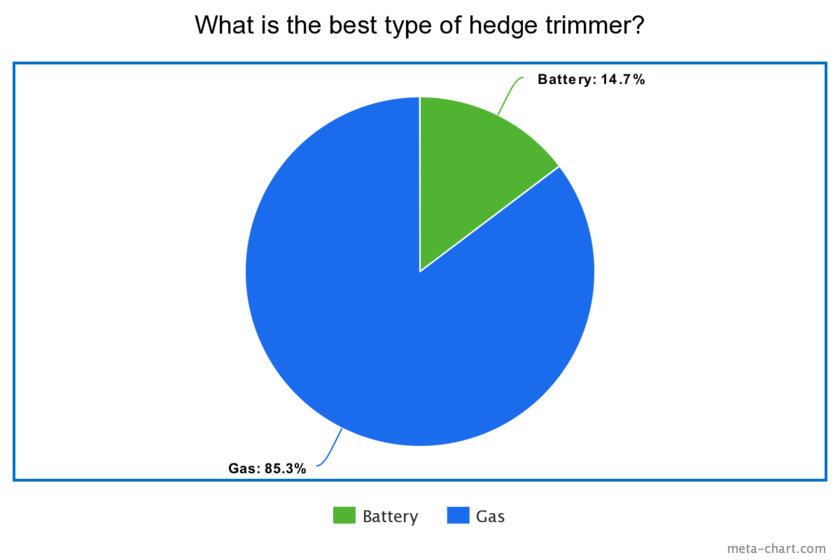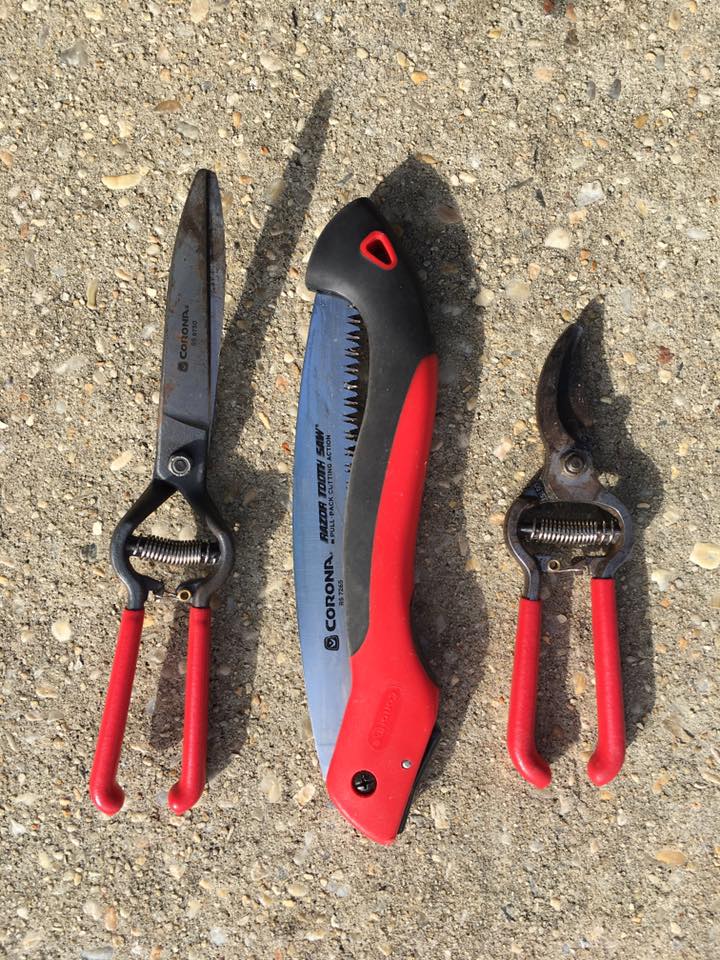Looking to whip your hedges back into shape…
But not sure which type of trimmer you should get?
Today, lets take a deep dive into which types of hedge trimmers are preferred among the lawn care pro community.
Should you consider a gas hedge trimmer? Or a battery powered one?
Well, you better brace yourself, cause it’s going to be a bumpy, very opinionated ride.
Lets get on the road, and see what lawn care pros have to say about which hedge trimmer they prefer.
And be sure to check out our complete guide of lawn care tips.
The Great Gas Vs. Battery Operated Debate
Look, one of the greatest debates among the lawn care community is whether battery operated equipment is better than the gas powered competition.
This is perhaps the only debate in the lawn care community that rivals the great Guard or No Guard rivalry.
So as we tread carefully forth, we must carefully consider the pros and cons of each power supply option for the hedge trimmer.
It's true, and regardless of your overall opinion there are certainly benefits to each source of power. So lets take a look.
But before you get to far, make sure to read our guide on pruning bushes.

Pros and Cons of Battery Powered Hedge Trimmers
Here's the deal, there are a lot of pros to battery powered hedge trimmers.
The pros of electric hedge trimmers are:
Quieter operation,
No smell,
No need to carry around gas.
On the other hand, there are great limitations that electric powered hedge trimmers face. These limitations are:
Limited battery life,
Can be more expensive,
Less powerful than gas powered equipment.
We will look more at what these pros and cons mean in a practical sense in a moment. But first let's look at the pros and cons of gas powered equipment.

Pros of Gas Powered Hedge Trimmers
Hands down, gas-powered equipment has long been the preferred source of power among the lawn care community. And with good reason to.
Some of the reasons lawn care pros may prefer gas powered hedge trimmers include:
More power,
Easier repairs,
Cheaper,
Indefinite operation with no need to charge a battery.
Of course, not everything is roses with gas powered equipment either. Some of the downsides to gas powered equipment include:
Louder operations,
Requires gas to operate,
And cant be turned on and off as easily.
Ok, with all of that in mind, what do landscapers and lawn care professionals have to say about which option is better?

Which hedge trimmer do landscapers prefer, gas or electric?
Here is where the opinions run deep. Brace yourself!
There is no simple answer to this question, it really comes down to personal preference, and you will see that in a moment.
Despite the advantages to both, the overwhelming consensus among lawn care pros is gas powered hedge trimmers are superior. With over 85% saying they prefer gas over electric.

And less than 15% opting for a battery powered hedge trimmer. Despite the overwhelming amount of votes going to gas powered equipment. Landscapers had a lot of good to say about electric equipment too.
.jpg)
Electric Hedge Trimmers Can Give You An Early Start
One landscaper reports using electric trimmers in the early morning to get a head start to the day. Then switching to gas later in the day. Using the electric hedge trimmers allows you to work around noise ordinances and annoying your clients' neighbors.

“I have Both, Depends on the Situation”
Some lawn care professionals simply carry both, and will use one or the other depending on the situation. And it's widley reported that gas powered equipment is preffered fro larger jobs. While electric is perfect for smaller jobs.

Gas Powered Hedge Trimmers Are Better for Larger Jobs
Hands down, gas powered hedge trimmers are more powerful, making them better for larger jobs. You also don't have to worry about having extra batteries while you are on a bigger hedge trimming project. Simply keep gas and oil on hand and you can trim for hours and hours on end.
Alternatives to Hedge Trimmers
So, being the creative bunch they are. Some of the landscapers we asked had their own interesting alternatives to gas and electric hedge trimmers.
In fact, 2 different landscapers reported preferring “a vegan” to trim hedges.
And 4 opted to use a “beaver”.
Both would appear to be rather expensive and impractical tools to get the job done.
On a more serious note, some lawn care professionals simply opt to use manual pruning tools like these to get the job done.

Selecting the Right Equipment at the end of the Day
Look, it really does come down to your preferences and what your needs are. Unlike the cut and dry nature of selecting the best weedeater, hedge trimmers are more complex in nature.
For landscapers gas powered hedge trimmers are broadly preferred. But for the average homeowner or a lawn care professional that rarely prunes hedges, an electric hedge trimmer will do the trick.
Despite the overwhelming consensus that gas powered is preferred over battery in the lawn care community. Keep in mind part of that comes down to the stigma many landscapers have toward battery powered equipment.
It’s true, battery powered equipment has come a long way, but it still doesn’t completely par up to traditional lawn care equipment. And even when or if it does, convincing the lawn care community is a different challenge all together.
Frequently Asked Questions
What is the difference between a hedge trimmer and a hedge cutter?
A hedge trimmer is designed for regular maintenance and shaping of hedges, using smaller blades. A hedge cutter is more robust, designed for cutting thicker branches and heavier foliage.
Here's a breakdown of the key differences between hedge trimmers and hedge cutters:
| Feature | Hedge Trimmer | Hedge Cutter |
|---|---|---|
| Purpose | Designed for regular maintenance and shaping of hedges | Built for cutting through thick branches and robust foliage |
| Blade Type | Smaller, lighter blades for fine trimming | Larger, more durable blades for tougher cutting |
| Power | Less powerful, suited for lighter tasks | More powerful, capable of handling larger, tougher tasks |
| Usage Frequency | Ideal for frequent use to maintain hedges | Used for occasional heavy-duty cutting |
| Size and Weight | Lighter and easier to handle | Heavier and bulkier, providing extra power |
What voltage hedge trimmer is best?
Higher voltage (e.g., 36V-40V) is preferable for more power and longer run time, ideal for larger jobs. Lower voltage (e.g., 18V-20V) is sufficient for lighter, smaller tasks.
How powerful a hedge trimmer do you need?
The power of a hedge trimmer you need depends on the thickness of the branches you plan to cut. For thin branches (up to ½ inch), a trimmer with 3 to 5 amps or 20 to 40 volts is sufficient.
For thicker branches (up to ¾ inch), choose a trimmer with at least 4 to 7 amps or 40 to 80 volts. For the thickest branches and professional use, look for models with more than 7 amps or 80 volts.



















